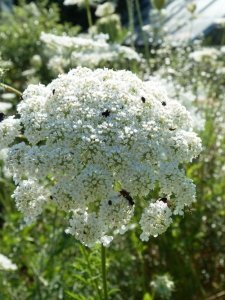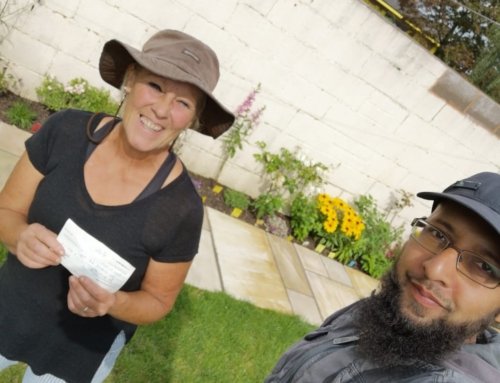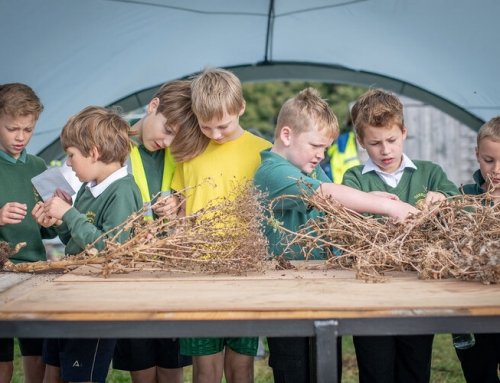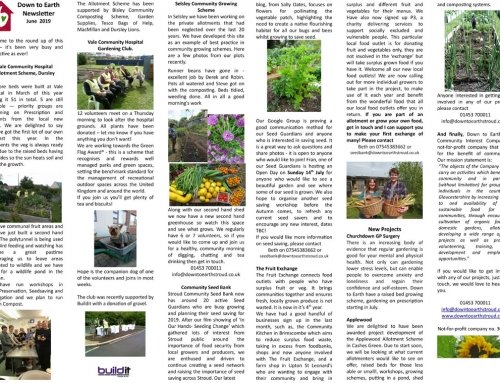Are flowers growing in amongst your vegetable crops beneficial to crop production and seed saving?
A row of blooms will attract many pollinating insects throughout the growing season. By sowing hardy annual flower seeds during the autumn and spring, it is quite possible to have a long succession of attractive colour both for the insects and grower. These also can be a mix of herbs, garden and wild flowers.
Local growers have contributed flower seeds to the annual seed exchange catalogue of Sweet Cicely, Thyme, Dill, Calendula, Fennel, Black Cumin, Field Scabious, Foxgloves, Hollyhocks, Lychnis Coronaria, Nigella, Poppies, Sunflowers, Sweet Peas, Verbena Bonarensis and Nicandra Physaloides.
By having a good supply of pollen and nectar over a long time, insect pollinators can be nurtured. They will be present when crops are ready to be pollinated. This increases yields significantly.
Open pollination with insects gives a good flow of pollen between plants of the same type, making these more genetically diverse, allowing plants to slowly adapt to local growing conditions. As long as pollen is not shared between different varieties within the same species, then the seed produced will remain true to type year after year.

Spring crops of Broad Beans, followed by Kales and Purple Sprouting quickly make flowers as the weather warms. Bumble bees fly in cooler temperatures than other wild bees and honey bees, and are important early in the year.
Other winged insect visitors through the year will include beetles, hoverflies, wasps, butterflies and moths. Remember these creatures also have immature life cycles and they need food plants and somewhere to live. In the Cotswolds we have good populations of solitary bees, which make nests underground; as do some bumble bees, others prefer to nest higher up in bird nest boxes, lofts and trees.
Growing organically is of great advantage to our native insect fauna.
Sally Oates, Seed Guardian
Stroud Community Seed Bank
seedbank@downtoearthstroud.co.uk
www.downtoearthstroud.co.uk/seed-saving/





